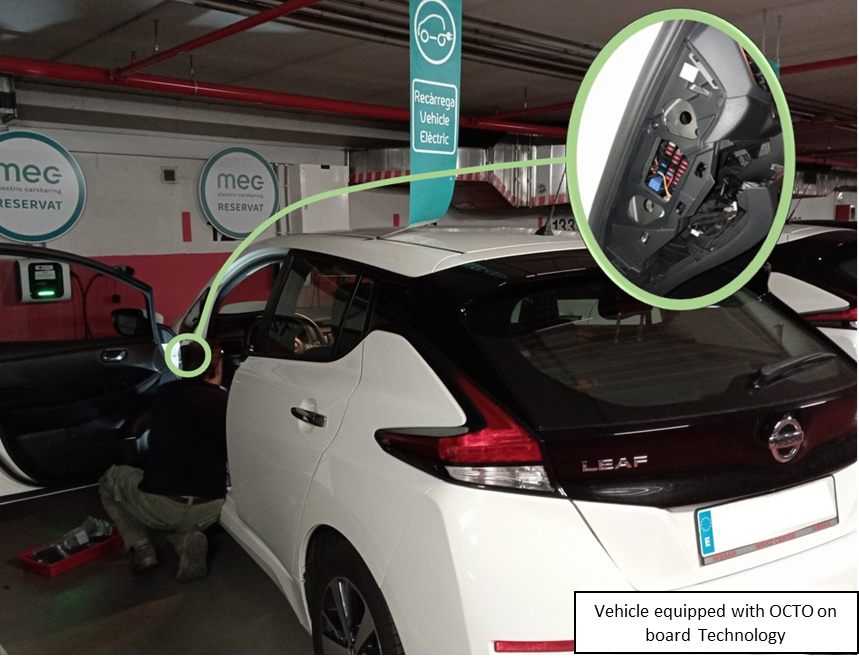
In the context of Molière’s Mobility Data Marketplace (MDM) foundations, incentives to users and providers of mobility services are in place to attract more players to the network and encourage use of the blockchain platform.
To receive these incentives, every stakeholder needs to cryptographically sign the operations they perform and include a geo-location tag as appropriate. Linked to this, one of the use cases defined by the Molière consortium during 2022 was the Proof of Mobility Service (PoMS), which is developing a technology to prevent potential fraud associated to the receipt of tokens generated when a mobility service has been delivered.
OCTO Telematics and IOMOB, Molière partners, have implemented the Proof of Mobility Service in collaboration with MEC Electric Car Sharing. The use case shows how the technology implemented allows to put in place a completely automated and certified process for car sharing service delivery starting from a connected vehicle which is able to communicate lots of its data to the platform to simplify the user experience.
For this aim, all the vehicles of the carsharing company fleet in Barcelona have been equipped with OCTO’s devices, embedding the Galileo technology thus transforming each car in a “connected vehicle”.
In addition to the Galileo positioning, OCTO devices include additional sensors as the accelerometer, a scalable configuration according to the needs and the Country in terms of GSM coverage and connectivity, short range connectivity services (BLE) and communication protocol management to define the frequency for data collection based on the applications and use cases to be managed.
So, OCTO devices start the smart process including a set of extensive features allowing the driving habits and behaviour profiling, crash detection and management, driving risk and eco-driving predictive scoring, as well as the management and optimization of company fleet services.
All these specific characteristics, added to the Galileo localization, are the foundation for the mobility data acquisition as trip, crash and driving behaviour detected on the vehicles that are the enabler for the use case implemented.

In more detail, OCTO’s device collect data from the vehicle to feed MEC’s carsharing fleet during their rides. In parallel, MEC’s carsharing trips will also be collected and shared as anonymised data. The former will then be introduced in Molière’s MDM and the PoMS mechanism applied by IOMOB.
Crosschecking the two sets of data enables the proof of concept of the mechanism in charge of detecting that rides are effectively delivered, and fraud in the acquisition of tokens is consequently prevented.
_______________________________________________________________________
About MEC Electric Car Sharing
MEC Electric Car Sharing was born in 2018 in Barcelona and is the first flexible car sharing service that offers a fully electric vehicle fleet. MEC’s added value is focused on providing an accessible supply of electric vehicles to the citizens of Barcelona and nearby populations, thereby promoting sustainable transport and providing a tangible benefit to society.
Easily available from specific car parking areas in Catalonia, MEC services can be quickly booked through their app which displays the closest available vehicle at the moment of booking. On a standing point, fast charge is included in their rental rate: users can travel the distance they choose without worrying about autonomy, since MEC informs them about the network of electric vehicle charging points that can be used for free before their trip begins, all for their peace of mind.